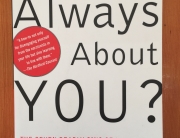 Kava, used for generations in traditional ceremonies by Pacific islanders, is an effective and safe treatment for anxiety, university researchers say. People with “chronic high levels of anxiety” feel less worried and, in some cases, less depressed during a 60-person trial undertaken at the University of Queensland.
Kava, used for generations in traditional ceremonies by Pacific islanders, is an effective and safe treatment for anxiety, university researchers say. People with “chronic high levels of anxiety” feel less worried and, in some cases, less depressed during a 60-person trial undertaken at the University of Queensland.
“We’ve been able to show that kava offers a natural alternative for the treatment of anxiety and, unlike some pharmaceutical options, has less risk of dependency and less potential of side-effects,” said lead researcher Jerome Sarris, a PhD candidate from UQ’s School of Medicine. “We also found that kava had a positive impact on reducing depression levels, something which had not been tested before.”
Anxiety levels were reduced in trial participants who took five tablets of kava daily, as opposed to a placebo group that took dummy pills. Critically the study’s participants did not show any signs of potential liver damage – contrary to concerns that prompted European, British and Canadian authorities to ban kava sales in 2002.
Kava products sold in those countries were based on ethanol or acetone extracts of the kava plant, Mr Sarris said, not the water-soluble extracts used traditionally by Pacific islanders and approved for sale in Australia. “Our study used a water-soluble extract from the peeled root stock of a medicinal cultivar of the plant, which is approved by the Therapeutic Goods Administration,” Mr Sarris said. “When extracted in the appropriate way, kava may pose less or no potential liver problems and I hope the results will encourage governments to reconsider the ban.”
The Kava Anxiety Depression Spectrum Study (KADSS): a randomized, placebo-controlled crossover trial using an aqueous extract of Piper methysticum.
RATIONALE: Piper methysticum (Kava) has been withdrawn in European, British, and Canadian markets due to concerns over hepatotoxic reactions. The WHO recently recommended research into “aqueous” extracts of Kava. OBJECTIVE: The objective of this study was to conduct the first documented human clinical trial assessing the anxiolytic and antidepressant efficacy of an aqueous extract of Kava. DESIGN AND PARTICIPANTS: The Kava Anxiety Depression Spectrum Study was a 3-week placebo-controlled, double-blind crossover trial that recruited 60 adult participants with 1 month or more of elevated generalized anxiety. Five Kava tablets per day were prescribed containing 250 mg of kavalactones/day. RESULTS: The aqueous extract of Kava reduced participants’ Hamilton Anxiety Scale score in the first controlled phase by -9.9 (CI = 7.1, 12.7) vs. -0.8 (CI = -2.7, 4.3) for placebo and in the second controlled phase by -10.3 (CI = 5.8, 14.7) vs. +3.3 (CI = -6.8, 0.2). The pooled effect of Kava vs. placebo across phases was highly significant (p < 0.0001), with a substantial effect size (d = 2.24, [Formula: see text]). Pooled analyses also revealed highly significant relative reductions in Beck Anxiety Inventory and Montgomery-Asberg Depression Rating Scale scores. The aqueous extract was found to be safe, with no serious adverse effects and no clinical hepatotoxicity. CONCLUSIONS: The aqueous Kava preparation produced significant anxiolytic and antidepressant activity and raised no safety concerns at the dose and duration studied. Kava appears equally effective in cases where anxiety is accompanied by depression. This should encourage further study and consideration of globally reintroducing aqueous rootstock extracts of Kava for the management of anxiety.
Psychopharmacology (Berl). 2009 May 9.
PMID: 19430766




































































































































